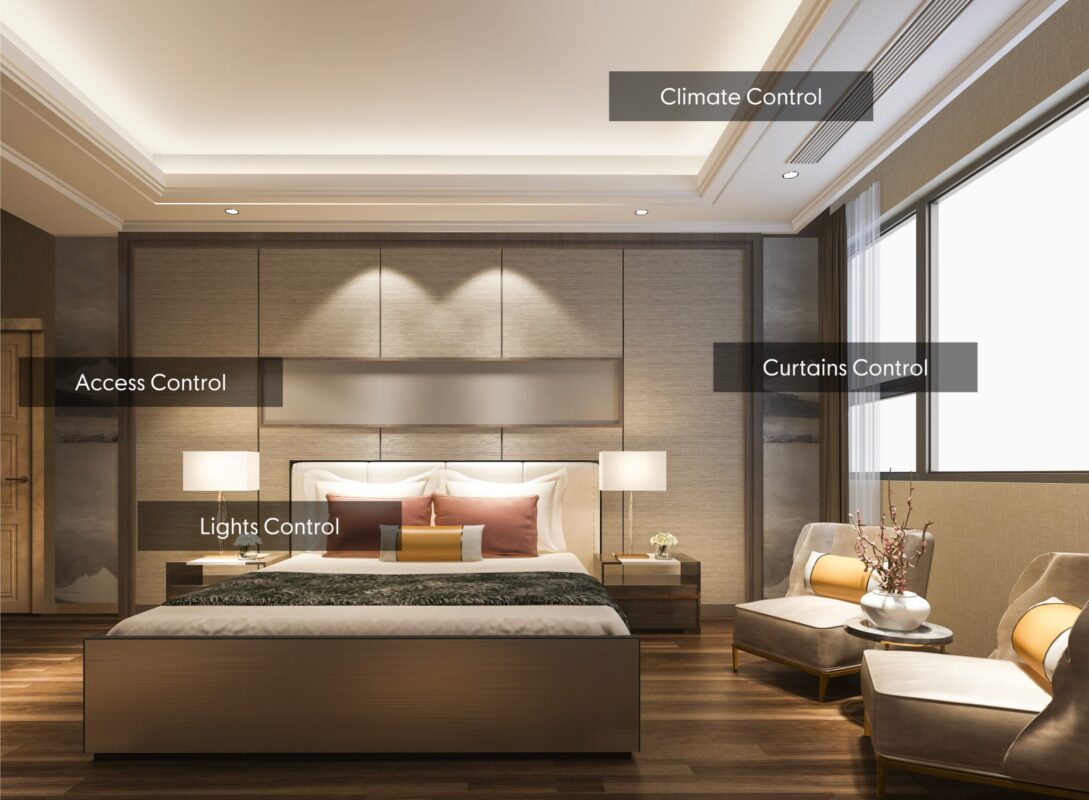Home Improvement
Telkonet Artificial Intelligence and Neuroscience Revolutionize Hospitality: Enhancing Guest Experience and Operational Efficiency
Neuroscience and Artificial Intelligence (AI) are revolutionizing the hotel industry, improving the guest experience and operational efficiency. By monitoring and adapting environmental elements in real-time, hotels can offer more comfortable and secure stays while ensuring more efficient resource management. This cutting-edge approach is an example of how technology can significantly enhance hospitality, enabling hotels to remain competitive and meet the ever-growing needs of their guests.
Recognizing Guest Preferences
One of the most significant aspects of applying neuroscience to AI in hospitality is the ability to analyze and understand customer preferences. Through the analysis of data collected through sensors, customer feedback, and online behavior, AI systems can accurately identify individual preferences. This allows hotels and restaurants to personalize the guest experience in unprecedented ways. For example, a hotel can automatically adjust room temperature, brightness, and even TV program choices based on a guest’s historical preferences.
Operational Efficiency
In addition to enhancing the guest experience, AI is revolutionizing operational efficiency in the hospitality industry. AI systems can optimize resource management in real-time, ensuring that hotels operate at their maximum capacity. A key example is human resource planning. AI algorithms can analyze booking forecasts and traffic predictions to determine the optimal number of employees required at any given time. This avoids overloading unused staff or understaffing during periods of high demand.
Service Personalization
AI is also taking hospitality to a new level of personalization through chatbot-based virtual assistants. These assistants can answer customer questions, manage reservations, and even recommend local activities based on customer interests. Using machine learning, these virtual assistants continually improve their ability to provide accurate and timely assistance.
Guest Safety and Well-being
Neuroscience also contributes to improving guest safety and well-being. Emotional state detection technology can help identify situations of stress or discomfort in guests, enabling staff to respond promptly to their needs. Furthermore, AI can monitor compliance with safety regulations, such as social distancing, and report violations to the relevant authorities.
Temperature and Comfort
Artificial intelligence can significantly enhance guest comfort by intelligently regulating room temperature. Using temperature sensors and real-time weather data, AI can anticipate and adapt to guest preferences. For example, it can cool or heat the room before guests arrive, maintain a constant temperature during the night, and customize it to individual preferences. Additionally, AI can learn guests’ thermal habits over time, ensuring personalized comfort. This contributes to a more pleasant and relaxing experience for guests during their stay.
Air Quality (AQI) and Carbon Dioxide (CO2)
Artificial intelligence can positively impact guest health and comfort in a hotel room by monitoring and regulating air quality. AQI monitoring can identify levels of air pollution, allowing AI to take corrective measures such as air filtration or advising guests on precautions to take. AI can also detect excessive carbon dioxide (CO2) buildup in the air, signaling when increased ventilation is needed to improve air quality.
Vibrations and Noise
AI can significantly improve sleep quality and guest comfort in a hotel by monitoring vibrations and noise. Using specialized sensors, AI can detect unwanted vibrations or disturbing noises in the room or the surrounding environment. Based on this data, AI can automatically respond, such as adjusting white noise levels to mask annoying sounds or providing guests with advice on improving sleep. This ensures a peaceful and restful environment, enhancing the guests’ experience and sleep quality during their stay.
Atmospheric Pressure
The integration of AI into hotel rooms to monitor atmospheric pressure and regulate environmental conditions can enhance guest comfort. AI can detect rapid changes in atmospheric pressure and automatically adjust ventilation and temperature to maintain optimal conditions. This can help mitigate negative effects on the health and sleep of guests sensitive to atmospheric variations. Furthermore, AI can provide real-time information to guests about environmental changes, thereby enhancing their overall experience during their stay.
GPS Location
GPS location can revolutionize operational efficiency with AI in various ways. For example, in the field of logistics, AI can use GPS data to optimize delivery routes, reducing travel times and operational costs.
Noise and Magnetic Waves
Noise and magnetic waves can affect sleep and comfort in various ways. Excessive noise, such as road traffic or nighttime noises, can disrupt sleep, causing frequent or shallow awakenings. On the other hand, magnetic waves from electronic devices can interfere with the internal biological clock, disrupting sleep quality. While not everyone is highly sensitive to these influences, ensuring a quiet environment and reducing exposure to magnetic waves can contribute to improved comfort and sleep quality for many people.
Conclusions
The intersection of neuroscience and artificial intelligence is leading to extraordinary improvements in hospitality. More satisfied customers, optimized operational efficiency, and constant attention to customer safety and well-being are just some of the promising facets of this revolution. As the industry continues to evolve, the synergy between these two disciplines will continue to transform how we experience hospitality.

